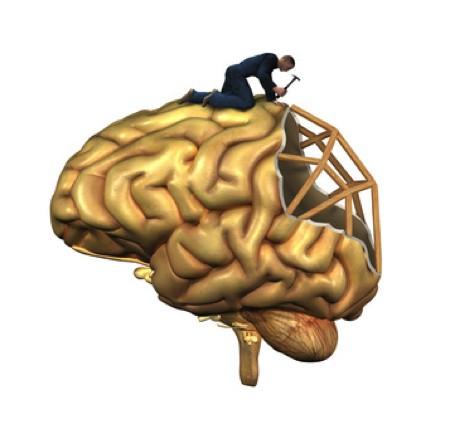New Study Unveils How Sleep Enhances Memory Consolidation in Rats
Table of Contents
March 25, 2025
Summary: A groundbreaking study conducted by researchers at the Institute of Science and Technology Austria (ISTA) has provided new insights into how sleep contributes to memory consolidation, particularly in spatial learning. By monitoring the hippocampal neuron activity of rats over extended periods, the team discovered that memory patterns initially mirrored the learning phase and then gradually shifted to align with the recollection phase upon waking.
Key Findings
- Non-REM Sleep’s Crucial Role: Memory reactivation and optimization predominantly occur during non-REM sleep, while REM sleep appears to counteract this effect.
- Neuronal Activity Shift: Neuronal activity patterns transitioned from reflecting the learning phase to resembling the recall phase, aiding in refining memory storage.
- Enhanced Neural Efficiency: Post-sleep, fewer neurons were involved in recalling reward locations, indicating an optimization of memory representation.
Research Methodology
The research team, led by Professor Jozsef Csicsvari at ISTA, employed advanced wireless recording techniques to monitor neuronal activity in the hippocampus of rats over a 20-hour period. This extended monitoring allowed for a comprehensive analysis of how sleep stages influence memory consolidation.
The rats underwent a spatial learning task where they were trained to locate food rewards within a maze. Following the learning phase, the researchers observed the rats during sleep, focusing on the reactivation of neuronal assemblies associated with the learned spatial information.
“We showed that the neuronal assemblies in the early stages of sleep reflect recently learned spatial memories. However, as sleep progresses, neuronal activity patterns gradually transform into those seen later, when the rats awaken and remember the locations of their food rewards,” said Csicsvari.
Implications for Memory Consolidation
The study’s findings suggest that sleep plays a pivotal role in optimizing memory representations. The observed “representational drift” during non-REM sleep indicates that the brain reorganizes and refines memory traces, potentially enhancing the efficiency of memory storage and retrieval.
“It is possible that memory representations must be formed quickly during learning but that such representations are not optimal for long-term storage. Therefore, a process may take place in sleep that optimizes these representations in sleep to reduce brain resources to store a specific memory,” Csicsvari explained.
This reorganization may also free up neural resources, allowing for the encoding of new information. The study observed that after sleep, fewer neurons were involved in recalling reward locations, suggesting an optimization of memory representation.
Broader Context and Future Research
While this research provides valuable insights into the mechanisms of memory consolidation in rats, it also has broader implications for understanding human memory processes. Previous studies have shown that sleep, particularly non-REM sleep, plays a crucial role in consolidating declarative memories in humans. The findings from this study may inform future research aimed at developing interventions to enhance memory consolidation in humans, such as optimizing sleep patterns or using targeted brain stimulation during sleep.
Further research is needed to explore the specific neural mechanisms underlying the observed representational drift and to determine how these processes might be harnessed to improve memory-related cognitive functions.
How does sleep affect different types of memory?
frequently Asked Questions (FAQ)
1. What is memory consolidation?
Memory consolidation is the process by which short-term memories are transformed into long-term, stable memories. This process involves the stabilization and integration of new data into existing memory networks, enhancing the efficiency of memory storage and retrieval.
2. How does sleep contribute to memory consolidation?
Sleep plays a crucial role in memory consolidation by reactivating and optimizing memory representations. During non-REM sleep, the brain reorganizes and refines memory traces, potentially enhancing the efficiency of memory storage and retrieval. This process, known as “representational drift,” suggests that sleep helps in optimizing memory representations to reduce the neural resources required for storing specific memories.
3. What are the key findings of the recent study on sleep and memory consolidation in rats?
- Non-REM Sleep’s Crucial Role: Memory reactivation and optimization predominantly occur during non-REM sleep, while REM sleep appears to counteract this effect.
- Neuronal Activity shift: Neuronal activity patterns transitioned from reflecting the learning phase to resembling the recall phase, aiding in refining memory storage.
- Enhanced Neural Efficiency: Post-sleep, fewer neurons were involved in recalling reward locations, indicating an optimization of memory representation.
4. how was the research conducted?
The research team, led by Professor Jozsef Csicsvari at the Institute of Science and Technology Austria (ISTA), employed advanced wireless recording techniques to monitor neuronal activity in the hippocampus of rats over a 20-hour period.The rats underwent a spatial learning task where they were trained to locate food rewards within a maze. Following the learning phase, the researchers observed the rats during sleep, focusing on the reactivation of neuronal assemblies associated with the learned spatial information.
5. What are the broader implications of this study?
While this research provides valuable insights into the mechanisms of memory consolidation in rats, it also has broader implications for understanding human memory processes. Previous studies have shown that sleep, particularly non-REM sleep, plays a crucial role in consolidating declarative memories in humans. The findings from this study may inform future research aimed at developing interventions to enhance memory consolidation in humans, such as optimizing sleep patterns or using targeted brain stimulation during sleep.

